Parenting is one of the trickiest jobs to take up after conception. Here are common parenting styles and which one to use:
Why do I say it’s a job? Because indeed it is. It takes a mother to consciously decide upon the best way to bring her child up, alongside running household chores and meeting her own work deadlines.
It really is nothing less than rocket science. For people who have not been parents yet, parenting might seem so much aligned with one’s natural potential as a woman to mother a child. But motherhood is a stressful venture. Quite understandably, a working mother finds it more difficult to balance home, self and work The professional workload can add to the postpartum stress and might significantly degrade a mother’s mental and physical health.
One of the hugely overlooked truths of parenting is that parenting involves both parent and their equal contributions make up for a suitable condition that ensures an overall general development of the child. It’s a myth that the mother has a bigger role to play in raising a child. Absence of a father can have drastic effects on the emotional, social and economic well-being of the child. Therefore, both of their involvement is crucial.
The difficult part of parenting is that it does not come with any rules. It is exclusively customized for every child.
Read 4 Types Of Parenting Styles In Psychology: What Kind Of A Parent Are You?
The parent’s caregiver intuition also plays a huge role in the efficiency of parenting. How you raise your child determines their future as an individual. You as a parent will make mistakes. But with love, patience and understanding, you can help your child grow into responsible individuals.
There a number of articles, blogs and books providing tricks and tips of effective parenting but in the end you have to make a choice that is best fit according to the needs of your child.
4 different parenting styles researched by child psychologists and counselors:
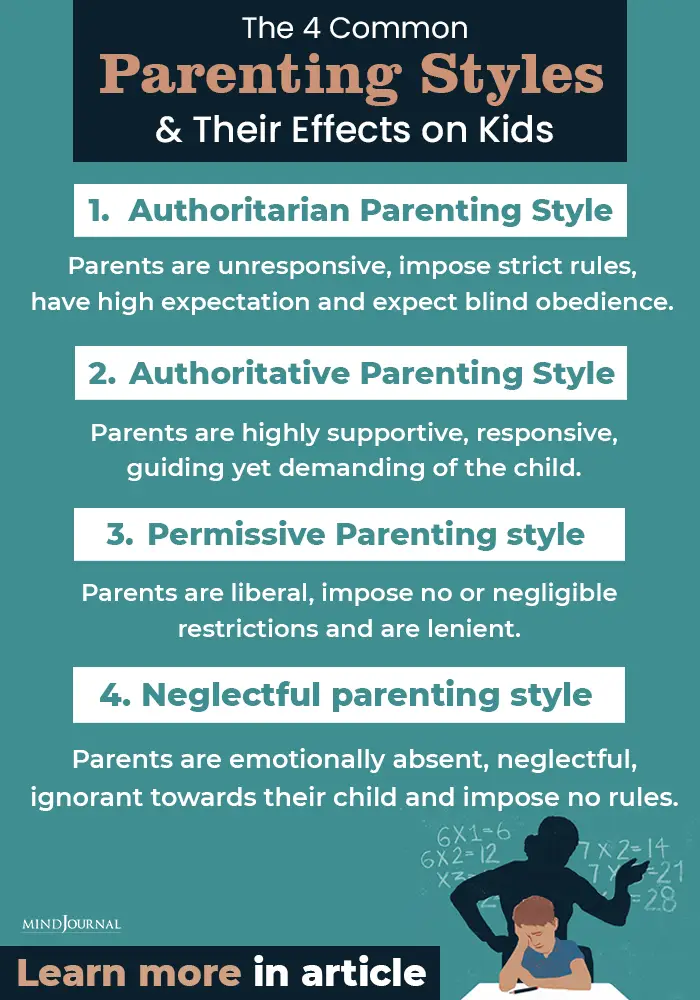
Four parenting styles or typologies namely Authoritarian, Authoritative, and Permissive parenting were developed by Baumrind (1967, 1971). Each of these has its own benefits and disadvantages. Cultural and generational factors has huge influence on the type of parenting style you choose.
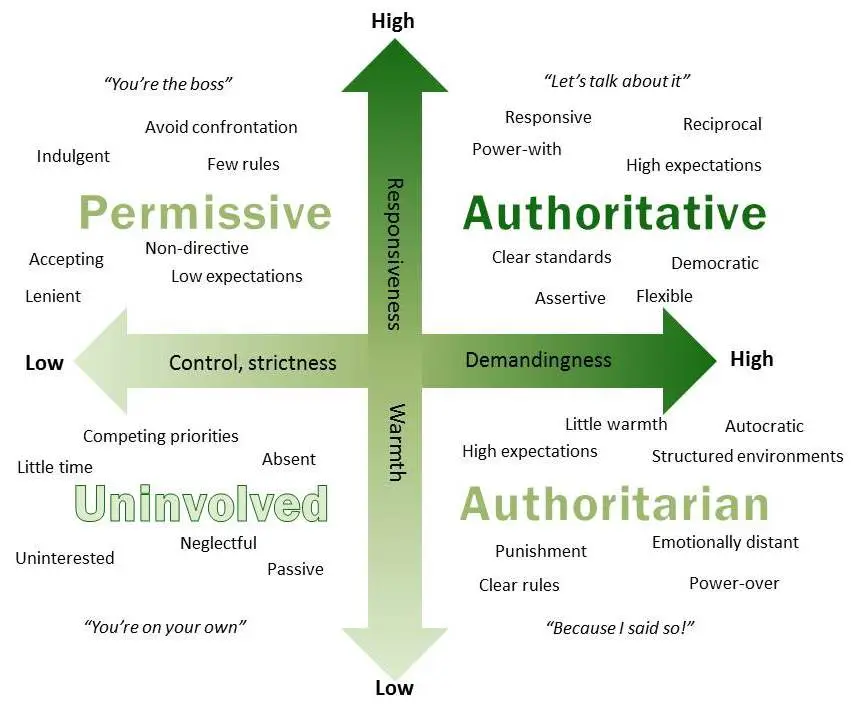
1. Authoritarian Parenting Style
In this type of parenting style, parents show low support, control their children to foster obedience and implement discipline. Parents who follow this type of parenting do not like taking “no” as an answer to requests on their parts.
They set very strictly, no-negotiable rules for their children accompanied with highly negative consequences for failing to follow them. The two main components of this parenting style are low responsiveness and high demandingness.
Salient features of Authoritarian Parenting style:
- Parents make rigid rules and regulations for their children, which are to be followed on all costs.
- Lack of transparency between parents and children.
- The children are faced with harsh criticisms on making absolutely inconsiderable and insignificant mistakes.
- The communication between children and parents is one-way and parents do not consult with their children while making decisions ( Alegre, 2011; Baumrind, 1971; Grolnick & Pomerantz, 2009; Leman, 2005).
- Follows the principle : “Authority figure is all powerful”
- The needs and desires of the children are not considered while making rules.
- Choices of children are of secondary importance and parents make decisions on behalf of their children ( (Fletcher et al., 2004; Steinberg, Elman, & Mounts, 1989).
- If and when children takes stand, they are faced with the saying, “My way or the highway”
- Punitive actions are taken when children fail to keep up to the expectations of their parents. (Timpano et al., 2010; Marsiglia et al.,2007)
- Parents’ and children’s personal boundaries are dissolved.
- Parents often use physical punishment like beating, spanking, thrashing, pulling, pricking, kicking and punching and emotional punishment like neglect, yelling, scolding, silent treatment, stonewalling to discipline their children ( Timpano et al., 2010; Marsiglia et al., 2007)
- Parents monitor child’s behaviour, activities inside and outside the house. (Barber (1996) and Fletcher, Steinberg, and Williams-Wheeler (2004) )
Do these resonate with your parenting style and ideals? Then you might be an authoritarian parent.
Benefits:
These parenting style apparently does not have any such benefits but these type of parenting might be productive when the child has fallen in the grasp of bad company and peer pressure is drastically affecting him to spiral downward.
Drawbacks:
Authoritarian parenting styles has a number of negative effects on the child as studied by parenting style experts.
- The self-confidence of the child is lowered by the constant criticism and blaming on the part of the parent.
- The emotional and physical punishments can be impeding for the child’s cognitive and emotional development.
- This type of parenting style is associated with a number of mental disorders in children like depression (Milevsky et al., 2007; 28 2008; Patock-Peckham & Morgan-Lopez, 2009), anxiety, panic disorder, PTSD and trauma.
- The children who have been exposed to authoritarian parenting style have over all low life satisfaction ( Leung, McBride-Chang, and Lai, 2004).
- Children raised by authoritarian parents grow up to have significantly low self-esteem and self-doubt. These children put less worth and validation on self. In turn, this hampers their performances in career, interpersonal relationships and social interactions during their adulthood.
- A study (Barnow et al., 2005) concluded that the use of violence and aggression by the parents to discipline their children might cause these children to model this aggression and use it against the parents as a protest when they grow up.
Read Helicopter Parenting: Why It Fosters Failure
2. Authoritative Parenting Style
This type of parenting style is characterized by two main components which are high responsiveness and high demandingness. Baumrind combined the best elements of permissive parenting (high warmth) with the best elements of authoritarian parenting (high control) to create an authoritative parenting style.
Salient features of Authoritative Parenting Style:
- Parents are highly supportive, responsive, guiding yet demanding of the child.
- Authoritative parents understand their children’s feelings and teach them how to regulate themselves and guide them to learn from any mistakes they make (Marsiglia, Walczyk, Buboltz, & Griffith-Ross, 2007).
- In this parenting style, parents assist their children to resolve problems (Baumrind, 1966, 1971).
- Parents are attuned with the needs of the children and discuss with them before taking decisions for them. Their viewpoint is given importance and respect (Baumrind, 1966, 1971).
- Authoritative parents display warmth, emotional support and affection towards their children (Darling & Steinberg, 1993; Suldo & Huebner, 2004).
- Parents encourage a both-way communication to ensure an emotionally conducive environment for the child to develop n (Darling & Steinberg, 1993; Suldo & Huebner, 2004).
- These parents help their children to develop their own identities and be independent but within the rules and boundaries set by parents (Grolnick & Pomerantz, 2009; Takeuchi & Takeuchi, 2008).
- The children receive consistent guidance and hence can easily follow their parents’ rules and keep up with their demands.
- The parent’s expectations and demands from the children are realistic, logical and achievable.
- Parents maintain transparency with their children and explain the logic behind the set regulations and limits.
- Children are treated with respect and their parents consider their opinions in any decisions they make for the children.
- Disciplinary techniques applied by authoritative parents are not harsh and psychologically catastrophic in nature.
- Control on the children’s behaviours is moderate and guidance on the parent’s part is high.
Read Parenting Burnout: How It Can Destroy Your Marriage
Benefits:
According to many studies, Authoritative parenting style is one of the most effective types of parenting because it includes all the good qualities of other types of parenting.
- Peer problems, academic problems and other problems faced by the children can be hugely minimised due to the two-way transparent communication.
- This parenting style effectively decreases the stress and the chances of having depression in children.
- Children grow up to have healthy self-esteem as they grow up with appreciation, love and respect s (Baumrind, 1966, 1971; Lamborn et al., 1991; Steinberg et al., 1994).
- This parenting style fulfills all developmental needs of the child as a supportive, loving, warm and secure environment is provided for them to grow up.
- Children raised by authoritative parents grow up to have more empathy and less aggressiveness.
- Children are happy, cheerful and satisfied with life. They have an optimistic outlook towards life.
Drawbacks:
This type of parenting style is not suitable in families with a low socio-economic background as the children might be exposed to more violence and aggression and the parents need to be strict with their rules and regulations to establish restrictions on them (Gfroerer et al., 2004; Rothrauff, Cooney, & An, 2009.
3. Permissive Parenting style
Permissive parenting style is characterised by high responsiveness and low demandingness. Parents who follow this parenting style is non-punitive, warm and accepting of their children ad never implement restrictions on them.
Salient features of Permissive Parenting Style:
- Liberal parents with no or negligible restrictions on the children’s activities and actions.
- Children are allowed to exercise full autonomy (Gfroerer et al. 2004).
- Parents encourage their children to do whatever they want to do.
- Parents do not set boundaries for their children.
- Parents are loving, non-controlling and affirmative in carrying out their responsibility of children.
- Parents lack the guidance the children need as the children are left to explore the world all by themselves.
Read Permissive Parenting Style: Why It’s Bad For You and Your Child?
Benefits:
Even though this kind of parenting looks incredible on the surface level but in the big picture, the benefits are low.
- The children gets a lot of freedom and chances to cater to their need for curiosity as they explore the world by themselves.
- Learning through experience has more rewards than learning through other people’s guidance. So, children who were raised by permissive parents gain a lot of experience and wisdom.
Read 25 Effective Parenting Rules For Mothers With Sons
Drawbacks:
- The children might grow up to show problematic behaviour like being addicted to substances, getting engaged in illegal activities, displaying delinquent behaviours etc.
- Children of permissive parents might grow up to be indecisive in nature, lacking good judgmental skills.
- These children have low self-esteem as they have been growing up without the attention and care of the parents.
- Lack of guidance might land these young children in trouble as they fall prey to inappropriate circumstances.
- Children grow up confused between what is right and what is wrong as they have no moral guidance from their parents.
4. Neglectful parenting style:
Neglectful parenting style was identified by Maccoby and Martin in 1983 and is not a part of the Baumrind’s parenting typology. This type of parenting style has two important components – Low responsiveness and low demandingness.
Parents who follow this style is highly unconcerned, neglectful showing lack of warm, connectivity and care towards their child. They are even undemanding of the child showing no interest or attention to the child. This makes the child believe that other aspects of parents’ lives are more important than them. They feel ignored and rejected by their parents.
Read Parenting Lessons: 5 Painful and Sad Truths Every Parent Needs To Know
Salient features of Neglectful Parenting Style:
- Parents are emotionally absent, neglectful and ignorant towards their child even when they might provide food, shelter and basic amenities for their children.
- Parents do not demand anything from their children.
- Children grow up on their own without any guidance from the parents.
- Parents are disconnected and detached from their children.
- Lack of communication leads the children to down regulate their emotions.
Benefits:
There are no benefits to this type of parenting. Moreover, this type of parenting leads to a number of negative consequences.
Drawbacks:
- Children developed low self-esteem on being brought up by neglectful parents.
- Many mental health issues like depression, anxiety came up in these children.
- Neglected children grew up to have difficulties in interpersonal relationships, career choices and social interactions.
- Emotional dysregulation during childhood among these children lead to problems in expressing emotions, controlling it and managing it. They grow up to have less empathy.
Now, the question is which one parenting style do I follow for my child?
If this article was meant to come with an instruction manual for raising your child, by now it must have increased your dilemma. Every single child has very specific needs. Now the trick is for you to be attentive about your child’s needs.
What parenting styles one will follow highly depends on the cultural and economic background, your status as a parent – if you’re a single parent, working parent, has health issues etc.
The factors are endless. None of the parenting styles is fruitful when used independently. You often have to mix and match some of the features of one parenting style with the other to get the best results out of it. Sometimes you have to permissive while the other times you might become authoritative. Often in different family set ups, one parent takes on one style while the other takes on another style, keeping in mind the advantages of different parenting styles.
Read The Dangers of Distracted Parenting: Why Parents Need To Put Down Their Phones
A few things that you should keep in mind as a parent are:
Be aware of the developmental needs of your child. How you implement rules and limitations, how you interact with them, what your expectations are from them should all be based on what your child needs.
Align their needs with your capabilities. Be aware of what your potentials are as a parent and what you can bring forward for a conducive relationship between you and your child.
Be attuned with your child’s development. Be alert of your children’s behaviours, if they are suddenly behaving off-the-grid, or if they are not their usual self, intervene. Is there something that needs to be addressed? Be quick and take immediate measures.
Think the best for your child: Authoritative parenting style typically has good outcomes as it helps the child develop empathy, good cognitive and social skills, and avoids problem behaviors. Children who are raised by authoritative parents are also more successful, optimistic, happy and satisfied in later lives. So, why not implement this style of parenting?
The most difficult part of parenting is to trust your parental hunch and have the courage to let your child grow.
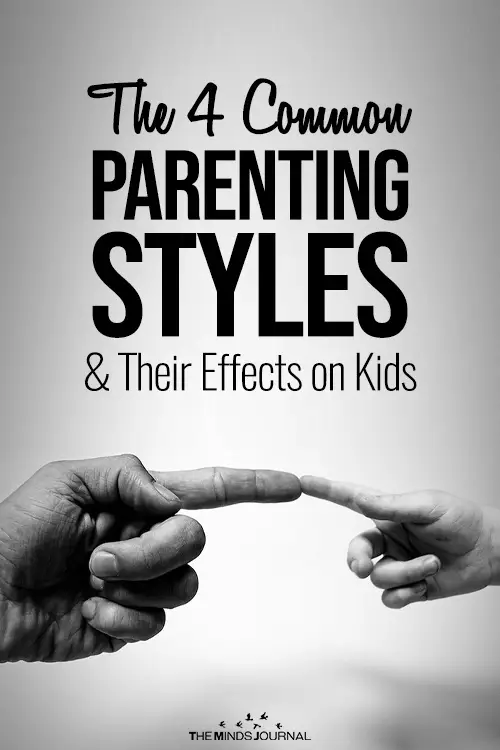
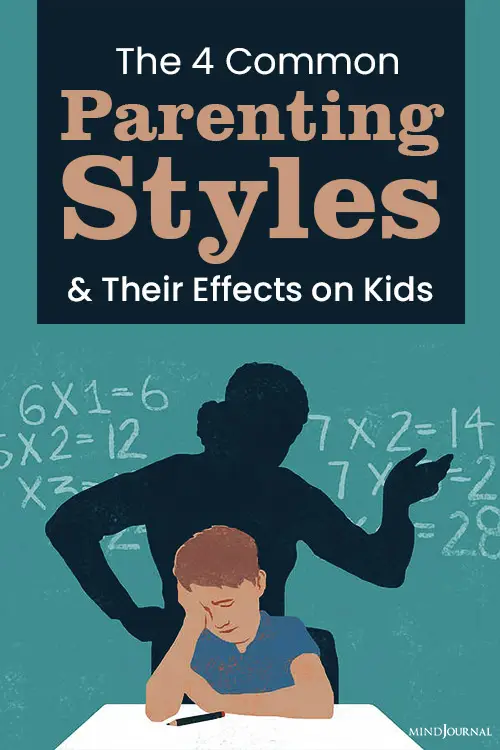
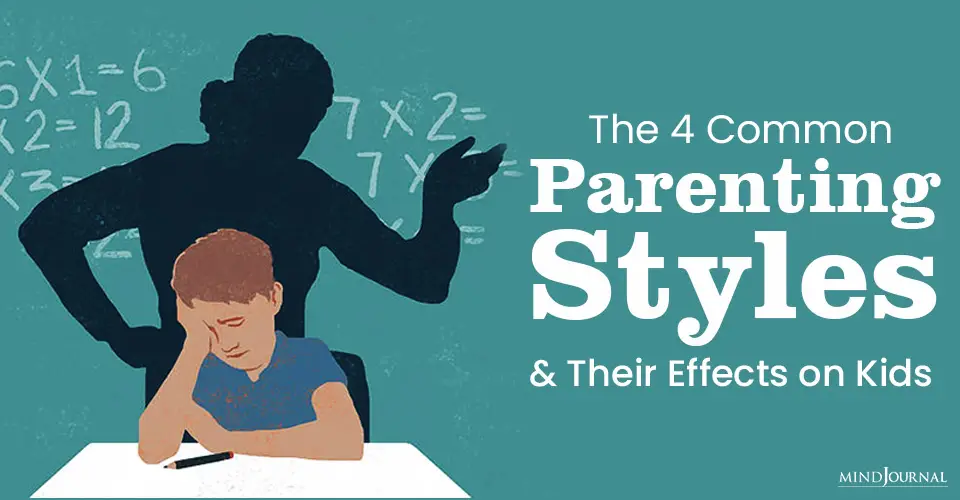







Leave a Reply
You must be logged in to post a comment.